
River Number Two Beach: Sierra Leone's Hidden Gem
River Number Two Beach is one of Sierra Leone's best-kept secrets, offering a pristine escape from the hustle and bustle of everyday life. Located just a short drive from Freetown, the beach is renowned for its powdery white sand and crystal-clear waters, making it an idyllic spot for relaxation and recreation. The beach is framed by lush, tropical greenery, creating a picturesque setting that feels like a page out of a travel magazine. Visitors can enjoy a range of activities here, from swimming and sunbathing to kayaking and fishing. The gentle waves and shallow waters make it a family-friendly destination, ideal for travelers of all ages. Beyond its natural beauty, River Number Two Beach is also a great place to experience local culture. The nearby fishing village offers an authentic glimpse into the lives of the local people, and you can often find fresh seafood being sold right on the beach. Whether you're looking to unwind or explore, River Number Two Beach provides a perfect blend of tranquility and adventure.
Local tips in River Number Two Beach
- Visit during the dry season (November to April) for the best weather.
- Bring cash as there are limited ATM facilities nearby.
- Try the fresh seafood from local vendors for an authentic taste of Sierra Leone.
- Consider hiring a local guide to learn more about the area's history and culture.
- Pack sunscreen and insect repellent to ensure a comfortable visit.
River Number Two Beach: Sierra Leone's Hidden Gem
River Number Two Beach is one of Sierra Leone's best-kept secrets, offering a pristine escape from the hustle and bustle of everyday life. Located just a short drive from Freetown, the beach is renowned for its powdery white sand and crystal-clear waters, making it an idyllic spot for relaxation and recreation. The beach is framed by lush, tropical greenery, creating a picturesque setting that feels like a page out of a travel magazine. Visitors can enjoy a range of activities here, from swimming and sunbathing to kayaking and fishing. The gentle waves and shallow waters make it a family-friendly destination, ideal for travelers of all ages. Beyond its natural beauty, River Number Two Beach is also a great place to experience local culture. The nearby fishing village offers an authentic glimpse into the lives of the local people, and you can often find fresh seafood being sold right on the beach. Whether you're looking to unwind or explore, River Number Two Beach provides a perfect blend of tranquility and adventure.
When is the best time to go to River Number Two Beach?
Iconic landmarks you can’t miss
River No 2 Beach
Embrace the tranquility of River No 2 Beach in Sierra Leone, a stunning coastal escape known for its soft sands and vibrant sunsets.
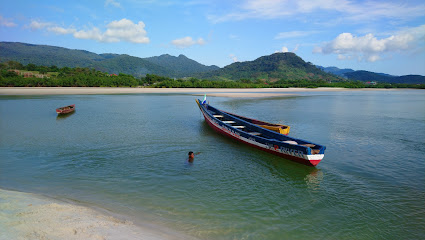
Lumley Beach Freetown Sierra Leone
Explore Lumley Beach in Freetown, Sierra Leone: a perfect blend of relaxation, adventure, and vibrant local culture.
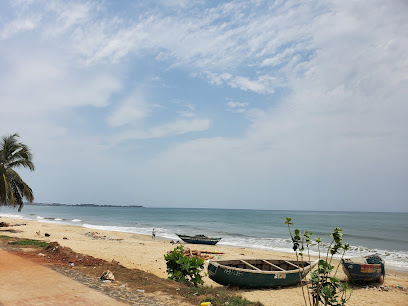
Sierra Leone Peace Museum
Explore Sierra Leone's history of conflict and resilience at the Sierra Leone Peace Museum, a vital tourist attraction in Freetown.
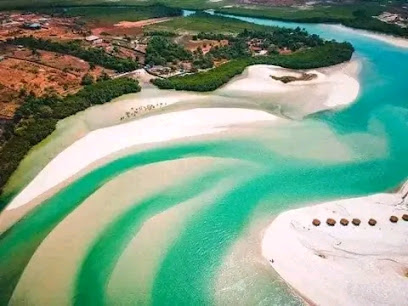
Tokeh Beach
Discover Tokeh Beach: Sierra Leone’s breathtaking coastal paradise with golden sands, clear waters, and vibrant culture waiting for you.
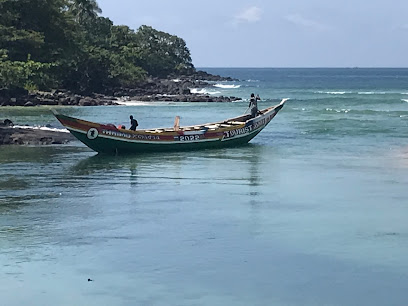
River 2 Beach
Explore the breathtaking beauty of River 2 Beach in Sussex, where golden sands meet crystal-clear waters for an unforgettable getaway.
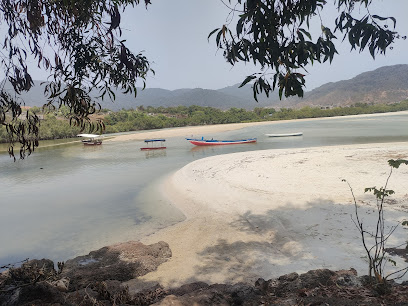
River No beach
Experience serenity and natural beauty at River No Beach, a hidden gem in Sierra Leone perfect for relaxation and exploration.
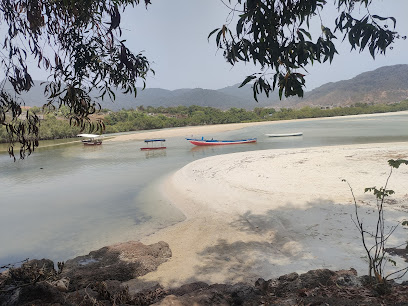
Eastern Police Clock Tower
Explore the Eastern Police Clock Tower, a historical landmark in Freetown, Sierra Leone, and immerse yourself in the city's rich colonial heritage.
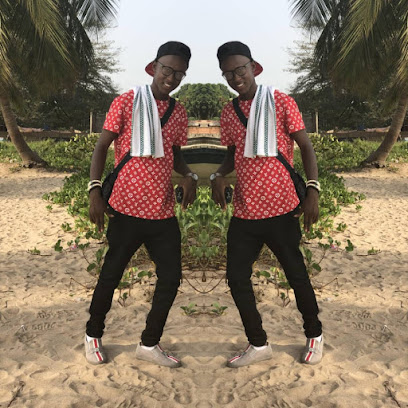
Mambo Waterfalls
Explore the stunning Mambo Waterfalls in Freetown, a breathtaking natural gem perfect for hiking, relaxation, and unforgettable memories in Sierra Leone.
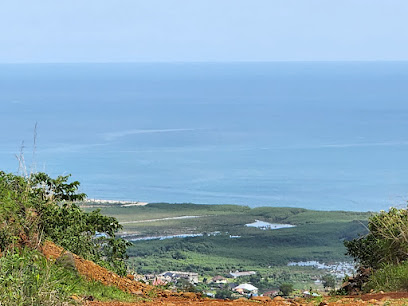
Lumley Beach Round About
Experience the serene beauty of Lumley Beach Round About in Freetown, a peaceful park perfect for relaxation and scenic views of the Atlantic.
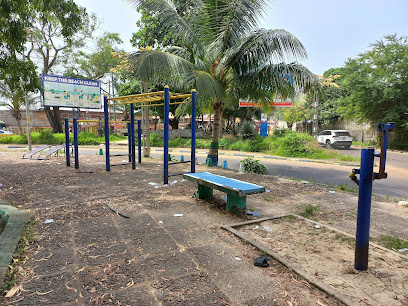
Unmissable attractions to see
River No 2 Beach
Discover the tranquil beauty of River No 2 Beach, a serene escape in Sierra Leone with pristine sands and crystal-clear waters, perfect for relaxation and adventure.
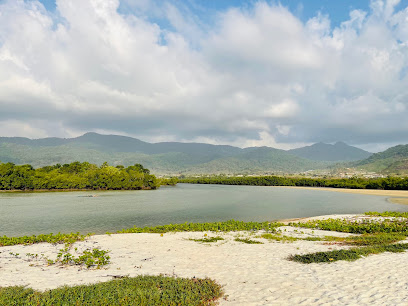
Lumley Beach Freetown Sierra Leone
Experience the beauty of Lumley Beach in Freetown, Sierra Leone, a stunning coastal paradise perfect for relaxation and adventure.
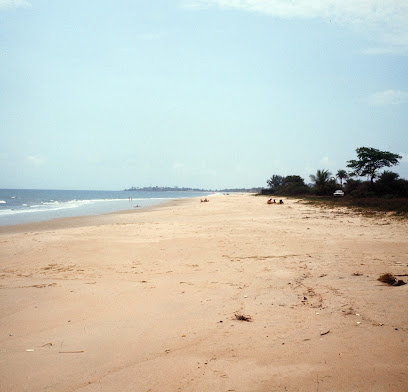
National Railway Museum
Explore Sierra Leone's railway history at the National Railway Museum, showcasing vintage trains and interactive exhibits in Freetown.
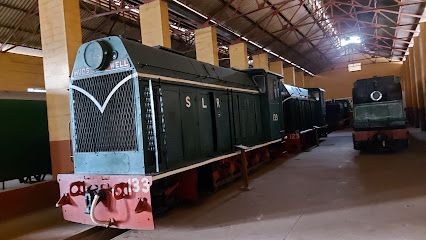
Tower Hill Central Mosque
Explore the spiritual and architectural beauty of Tower Hill Central Mosque, a cultural landmark in the heart of Freetown, Sierra Leone.
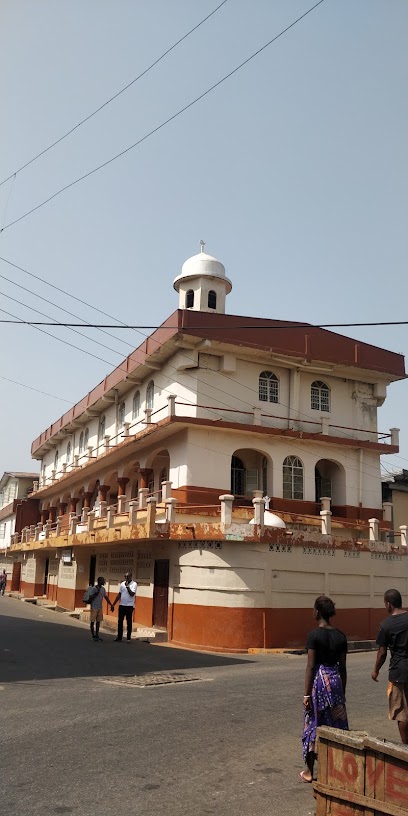
Sierra Leone Peace & Culture Monument
Discover the Sierra Leone Peace & Culture Monument, a serene park symbolizing national resilience and unity in Freetown, surrounded by lush landscapes.
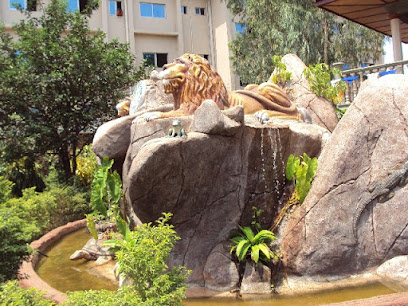
MID EAST HUNTERS
Explore the untamed wilderness of Sierra Leone at Mid East Hunters, where adventure and nature meet for an unforgettable experience.
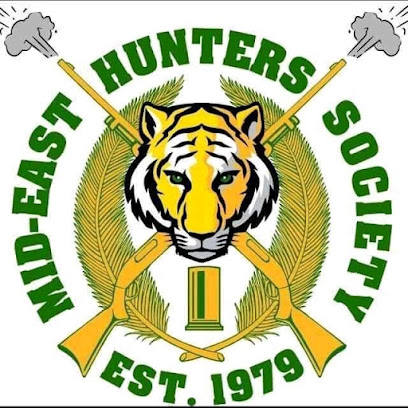
Lumley Turn Table
Experience tranquility in the heart of Freetown at Lumley Turn Table, a serene park perfect for relaxation and enjoying the local culture.

Graffiti wall of Freetown
Explore the colorful Graffiti Wall of Freetown, a vibrant expression of local art and culture in the heart of Sierra Leone's capital.
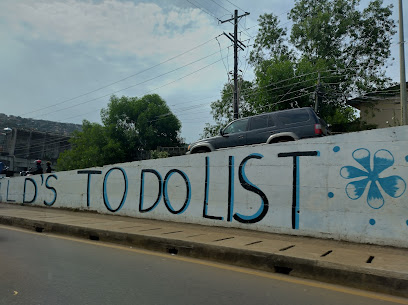
Laaka Beach
Experience the serene beauty of Laaka Beach in Lakka, a tranquil getaway with stunning views, soft sands, and a taste of local culture.

Beach Cafe
Discover Beach Cafe in Freetown, Sierra Leone - where fresh seafood meets breathtaking coastal views for the ultimate dining experience.

Cosmo J Nylander Mangrove Park
Explore the serene beauty of Cosmo J Nylander Mangrove Park, a peaceful retreat in Bureh Town with stunning mangrove views and vibrant wildlife.

Rosaline Mends
Explore Rosaline Mends in Freetown, a serene park perfect for relaxation and outdoor activities amidst lush greenery and scenic beauty.

Essential places to dine
Franco's
Discover Franco's in Sussex: A delightful blend of Sierra Leonean flavors and international cuisine awaits you!
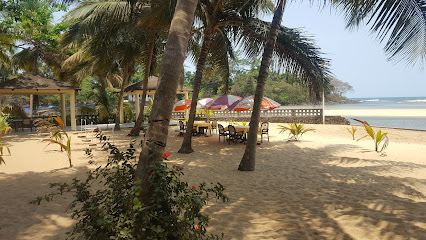
Olive's Garden
Discover authentic Sierra Leonean flavors at Olive's Garden in Freetown – a perfect blend of local ingredients and warm hospitality.
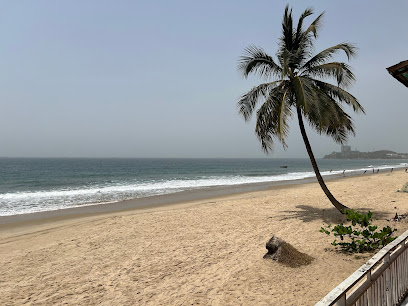
Paul's Beach Bar & Restaurant
Experience authentic Sierra Leonean cuisine at Paul's Beach Bar & Restaurant while enjoying stunning ocean views in Lakka.
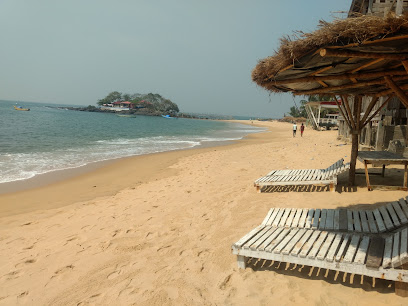
DupsaL Resort
Discover DupsaL Resort: A serene dining escape in Sussex offering authentic Sierra Leonean cuisine amidst breathtaking natural beauty.
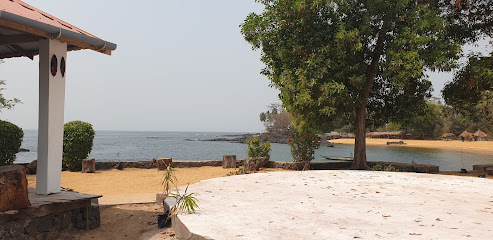
Summer Times Special (STS)
Experience beachside dining at Summer Times Special in Freetown - where local flavors meet breathtaking ocean views.
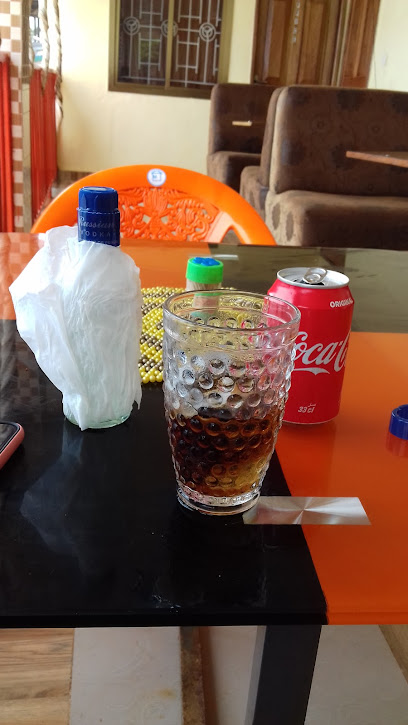
Samso's Restaurant
Discover fresh seafood delights at Samso's Restaurant in Freetown - where every bite tells a story of local flavors and coastal charm.
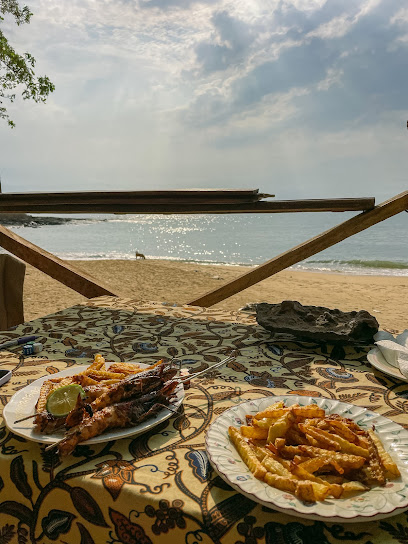
La Paz Restaurant
Experience authentic Sierra Leonean cuisine at La Paz Restaurant with refreshing natural juices in a warm and inviting atmosphere.
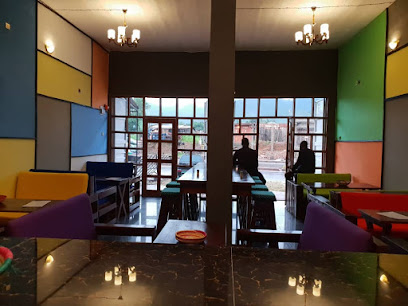
DeVillage Beach Bar & Restaurant
Experience delicious grilled cuisine with stunning ocean views at DeVillage Beach Bar & Restaurant in Freetown.
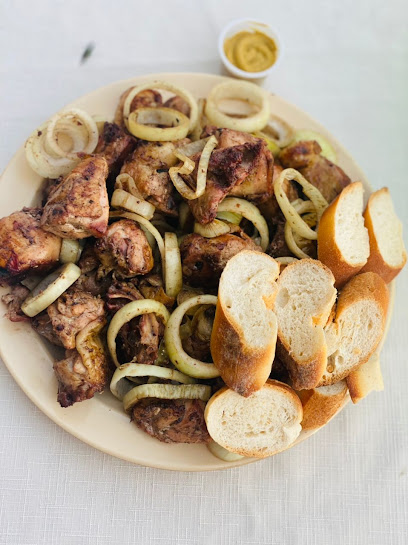
Ocean 69
Discover Ocean 69: A vibrant seaside restaurant in Freetown serving fresh seafood and local delicacies with stunning ocean views.
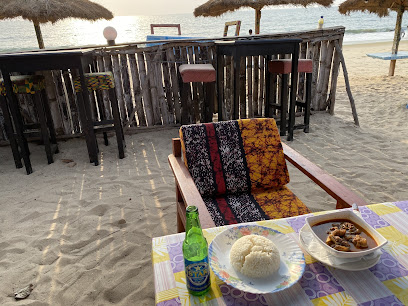
Freetown The Restaurant at the beach
Discover culinary delights with breathtaking ocean views at Freetown The Restaurant on Lumley Beach.
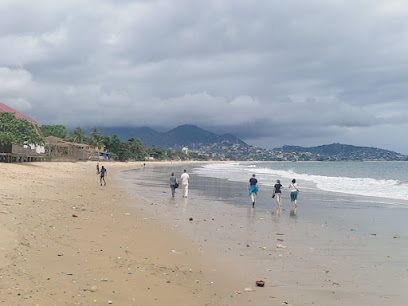
Peninsular Spot
Discover Peninsular Spot: A Grill Haven in Lakka Offering Delicious Local Cuisine and an Inviting Atmosphere.

Gigibonta
Experience authentic Italian cuisine at Gigibonta in Freetown - where every dish tells a story.
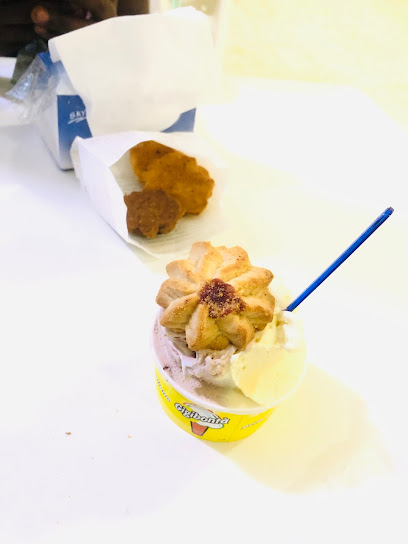
West End palace
Discover exquisite dining at West End Palace in Freetown - where local flavors meet stunning beach views.
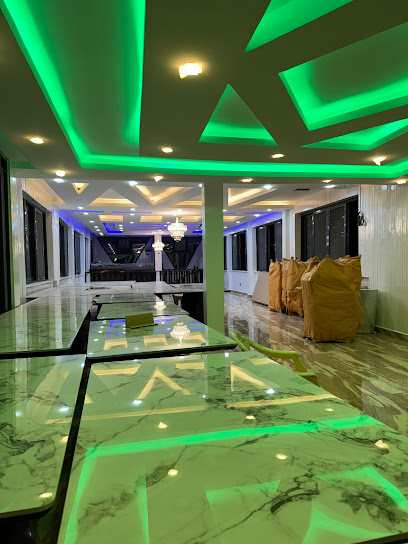
Cafe Beach
Discover tranquility at Cafe Beach in Freetown - where stunning ocean views meet delicious local cuisine for an unforgettable dining experience.
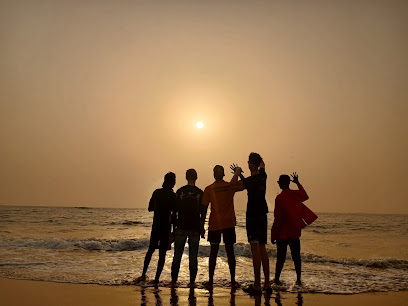
ROCK ATM BAR & RESTAURANT
Experience the vibrant flavors and warm hospitality at Rock ATM Bar & Restaurant in Freetown - a culinary delight awaits!
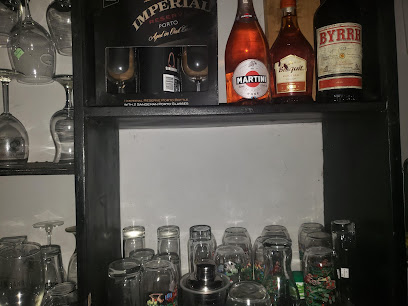
Markets, malls and hidden boutiques
River No 2 Beach
Experience the breathtaking beauty of River No 2 Beach, a serene paradise in Sierra Leone, perfect for relaxation and local culture.
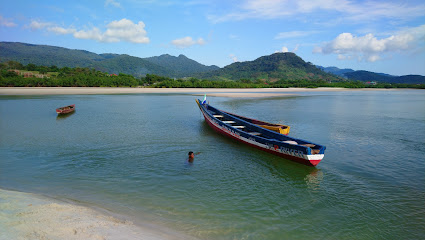
River No beach
Experience the tranquility of River No Beach, a hidden gem in Sussex perfect for nature lovers and those seeking a peaceful getaway.
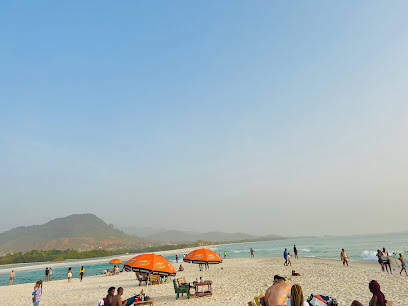
calaba Town
Experience the vibrant culture and unique fashion of Calaba Town in Freetown, a must-visit destination for clothing enthusiasts and culture seekers.
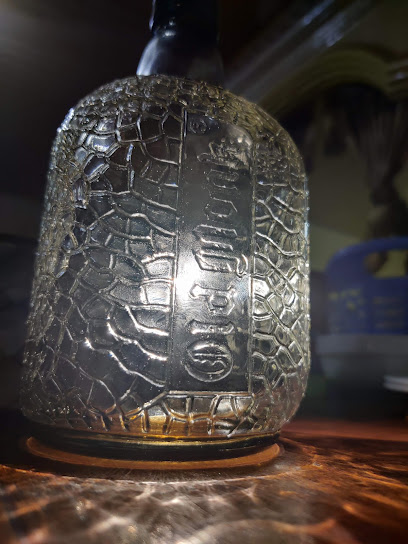
vip Fashion store
Explore VIP Fashion Store in Freetown, where trendy styles meet local charm in a boutique shopping experience.
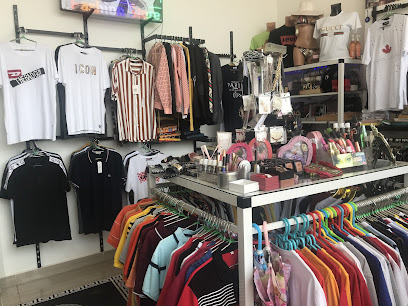
Gifts and More
Explore 'Gifts and More' in Freetown for unique souvenirs and local crafts, celebrating the vibrant culture of Sierra Leone.
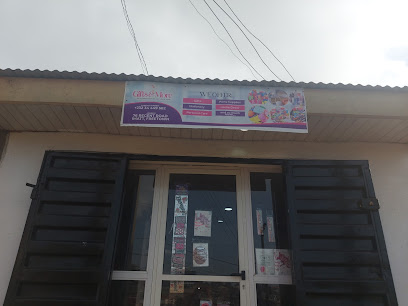
Marketplace Shop
Discover Freetown's Marketplace Shop: A vibrant health food store offering local produce and specialty health items for every conscious consumer.

Tees Pizza
Discover Tees Pizza in Tokeh, Freetown for delicious baked goods and a taste of local Sierra Leonean flavors.

Joyce's Africana
Discover authentic African goods at Joyce's Africana in Freetown, a vibrant store showcasing the continent's rich cultural heritage.
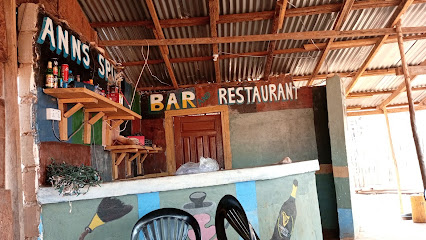
HAWA&SONS
Explore the vibrant culture of Sierra Leone at HAWA&SONS, a unique store in Freetown offering locally crafted treasures and authentic souvenirs.

Boi's collection
Explore Boi's Collection in Freetown for unique bags that blend local craftsmanship with modern style, perfect for every traveler.

Family store
Discover Freetown's Family Store - a hub for building materials, expert advice, and a glimpse into the local construction culture.

See view corner whole sales drink
Explore a vibrant selection of beverages at See View Corner, your go-to store in Sussex for refreshing drinks and local flavors.

Pharrel trendy kids zone
Discover the magic of play at Pharrel Trendy Kids Zone in Sussex, a vibrant store offering trendy toys and apparel for children.

Ayo admire home goods
Explore Ayo Admire Home Goods in Sussex for unique home decor and artisanal treasures that celebrate Sierra Leone's rich cultural heritage.

A&H mini-mart
Explore local flavors and essential goods at A&H Mini-Mart, a charming store in Sussex offering a taste of the region's culture.
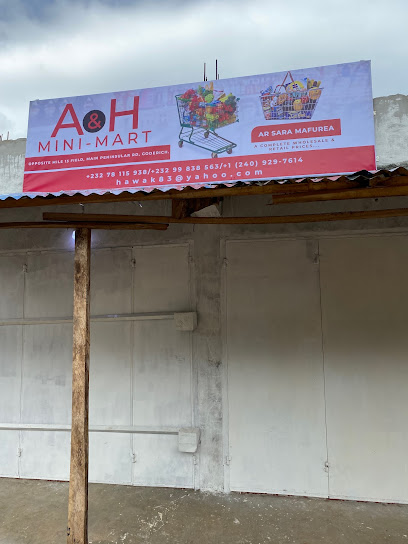
Essential bars & hidden hideouts
Summer Times Special (STS)
Discover Summer Times Special, your ideal bar and restaurant at Lakka Beach, where delicious food meets stunning ocean views.
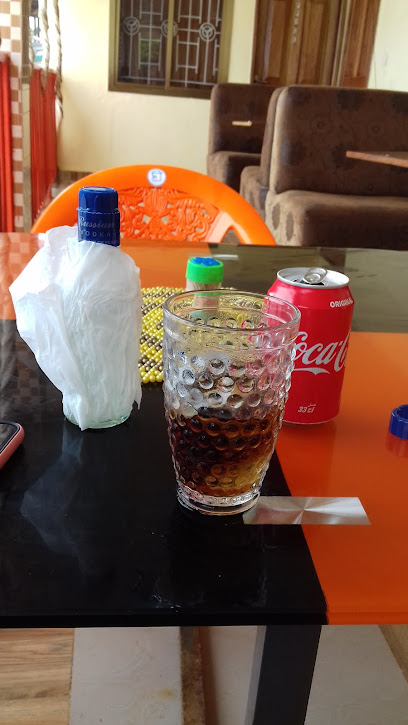
Mamz Beach Bar
Experience the tropical charm of Mamz Beach Bar, where stunning ocean views, delightful drinks, and local flavors come together in Freetown's coastal paradise.
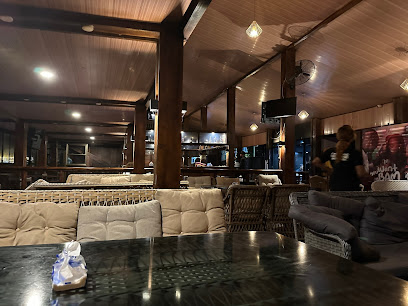
Aista Restaurant and Bar
Experience the vibrant flavors of Freetown at Aista Restaurant and Bar, where stunning coastal views meet a delightful culinary journey.
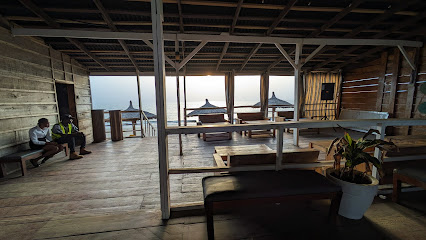
DeVillage Beach Bar & Restaurant
Experience the best of coastal dining at DeVillage Beach Bar & Restaurant, where grilled delicacies meet stunning ocean views in Freetown.
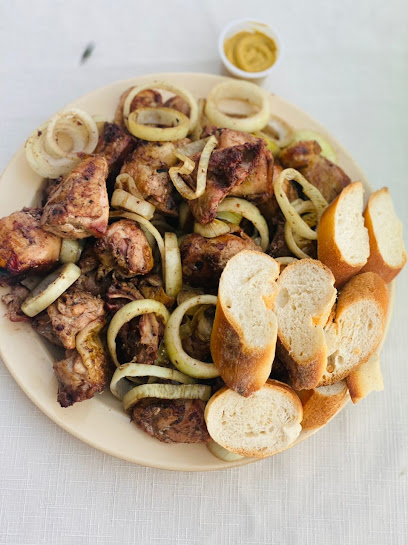
Jomat Bar N Lounge
Discover the vibrant flavors and lively atmosphere at Jomat Bar N Lounge in Freetown, where delicious grill dishes meet local culture.
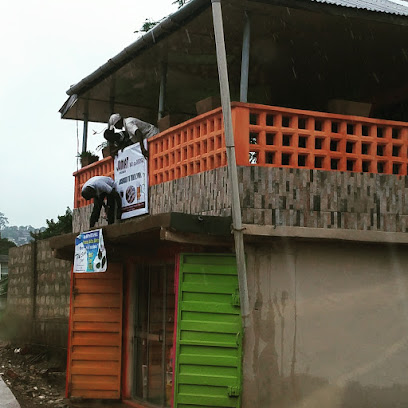
Peninsular Spot
Savor the flavors of Lakka at Peninsular Spot, a grill restaurant offering delicious local cuisine with stunning coastal views.

Harbor Bar - Moa Sombo - Esther
Dive into the vibrant culture of Freetown at Harbor Bar - Moa Sombo - Esther, where great drinks and a lively atmosphere await.
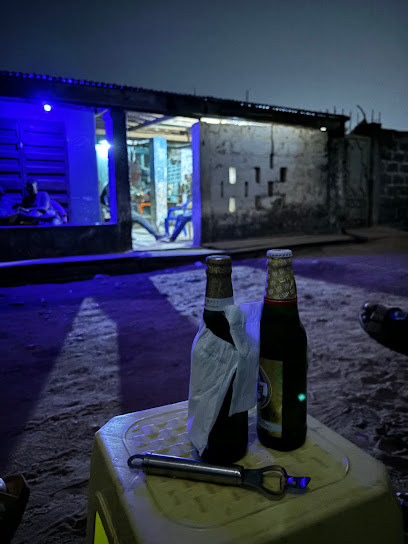
London Cafe
Discover the vibrant atmosphere of London Cafe, a local gem in Freetown offering refreshing drinks and a taste of Sierra Leonean culture.
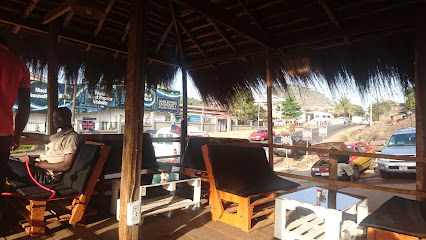
Omassa Entertainment Complex Bar
Discover the lively atmosphere of Omassa Entertainment Complex Bar, where great drinks and entertainment come together in Freetown's nightlife.
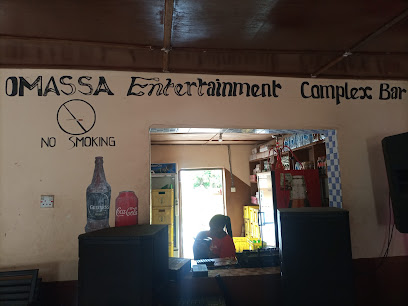
M&T Bar Entertainment
Experience the lively nightlife at M&T Bar Entertainment, Freetown's top destination for drinks, music, and unforgettable moments.

Tito's Bar and Restaurant
Discover the vibrant flavors of Freetown at Tito's Bar and Restaurant, where grilled delights meet stunning beach views for an unforgettable dining experience.
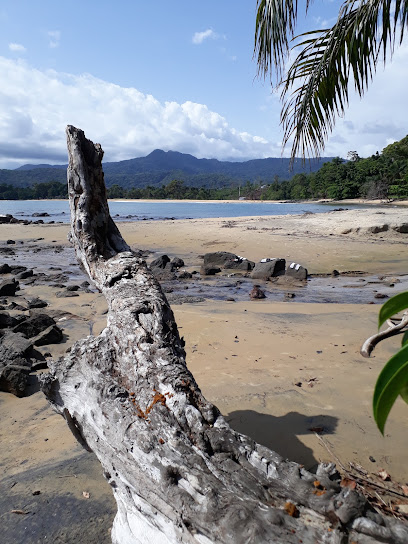
M&T Bar
Experience the vibrant nightlife of Freetown at M&T Bar, where great drinks and lively atmosphere await.

Hardees Beach Bar
Experience the vibrant nightlife and stunning ocean views at Hardees Beach Bar, the perfect coastal retreat in Freetown.
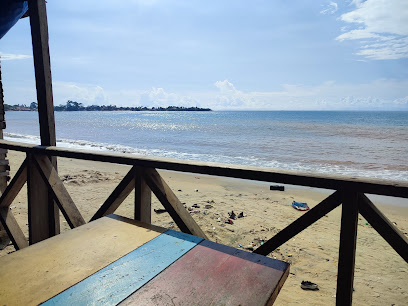
The Silver Spoon Grill-House and Beach Bar
Discover the exquisite flavors of The Silver Spoon Grill-House and Beach Bar in Freetown, where mouthwatering dishes meet stunning beach views for an unforgettable experience.

Local Phrases about River Number Two Beach
-
- HelloYá
[yah] - GoodbyeLehku
[leh-koo] - YesEh
[eh] - NoNó
[noh] - Please/You're welcomeNomo
[noh-moh] - Thank youTenki
[ten-kee] - Excuse me/SorrySòri
[soh-ree] - How are you?Ow di bodi?
[ow dee boh-dee] - Fine. And you?Fine. An yu?
[feen. ahn yoo] - Do you speak English?Yu de tok Inglish?
[yoo deh tohk in-glish] - I don't understandAh no sabi
[ah noh sah-bee]
- HelloYá
-
- I'd like to see the menu, pleaseAh go lek see di menu, abeg
[ah goh lek see dee meh-noo, ah-beg] - I don't eat meatAh no de eat fles
[ah noh deh eet flays] - Cheers!Chaa!
[chah] - I would like to pay, pleaseAh go lek pay, abeg
[ah goh lek pay, ah-beg]
- I'd like to see the menu, pleaseAh go lek see di menu, abeg
-
- Help!Hɛlp!
[help] - Go away!Gɔ we!
[goh weh] - Call the Police!Kɔl di Polis!
[kohl dee poh-lees] - Call a doctor!Kɔl wɔn dokita!
[kohl wohn doh-kee-tah] - I'm lostAh don los
[ah dohn lohs] - I'm illAh sik
[ah seek]
- Help!Hɛlp!
-
- I'd like to buy...Ah go lek buy...
[ah goh lek buy] - I'm just lookingAh dey luk onli
[ah deh look on-lee] - How much is it?Na how much?
[nah how much] - That's too expensiveDà wan tu eki
[dah wahn too eh-kee] - Can you lower the price?Yu fit lowan di praes?
[yoo fit low-wan dee prays]
- I'd like to buy...Ah go lek buy...
-
- What time is it?Na wetin tɛm?
[nah weh-tin tem] - It's one o'clockNa wan tɛm
[nah wahn tem] - Half past (10)A haf pas tin
[ah hahf pahs teen] - MorningMɔnin
[moh-neen] - AfternoonAftanun
[ahf-tah-noon] - EveningIvinin
[ee-vee-neen] - YesterdayYeside
[yeh-see-deh] - TodayTide
[tee-deh] - TomorrowTamora
[tah-moh-rah] - 1Wan
[wahn] - 2Tu
[too] - 3Tri
[tree] - 4Fɔ
[foh] - 5Fayv
[fahyv] - 6Siks
[siks] - 7Sɛvn
[seh-vuhn] - 8Eyt
[ayt] - 9Nain
[nayn] - 10Tin
[teen]
- What time is it?Na wetin tɛm?
-
- Where's a/the...?Wetin de...?
[weh-tin deh] - What's the address?Wetin da adris?
[weh-tin dah ah-drees] - Can you show me (on the map)?Yu fit sho mi (ɔn di map)?
[yoo fit shoh mee ohn dee map] - When's the next (bus)?Wetin taym di nɛks wan de?
[weh-tin tahym dee neks wahn deh] - A ticket (to ....)Wɔn tikɛt (gɛt ...)
[wohn tick-et (get)]
- Where's a/the...?Wetin de...?
History of River Number Two Beach
-
River Number Two Beach, nestled on the Freetown Peninsula of Sierra Leone, boasts a rich history that dates back to the early settlements of the Sherbro and Temne people. These indigenous groups lived in harmony with the land, utilizing the beach and surrounding waters for fishing and trade. The beach's name, 'River Number Two,' is derived from its position as the second river encountered by early European explorers and traders along the coast.
-
During the 18th and 19th centuries, River Number Two Beach became influenced by European colonial powers, particularly the British. The beach served as a strategic point for trade and navigation. European traders often anchored near the beach to exchange goods with local communities. This period saw the introduction of new goods, ideas, and cultural exchanges that left a lasting impact on the local way of life.
-
Tragically, River Number Two Beach was also a witness to the horrors of the transatlantic slave trade. The beach was one of the many points along the West African coast where enslaved Africans were transported to waiting ships bound for the Americas. This dark chapter in the beach's history is a somber reminder of the region's involvement in the global slave trade and its lasting implications on the local communities.
-
With Sierra Leone's independence from British colonial rule in 1961, River Number Two Beach began to transform. The beach became a symbol of national pride and a popular destination for both locals and tourists. Efforts were made to develop the area while preserving its natural beauty and cultural significance. Local communities played a crucial role in promoting sustainable tourism and protecting the beach's environment.
-
Today, River Number Two Beach is celebrated not only for its stunning natural beauty but also for its cultural significance. The beach is a hub for cultural festivals, traditional music, and dance performances. It serves as a gathering place for local communities and visitors to celebrate Sierra Leone's rich cultural heritage. The beach's vibrant atmosphere and welcoming spirit make it a must-visit destination for anyone exploring the history and culture of Sierra Leone.
River Number Two Beach Essentials
-
River Number Two Beach is located about 15 kilometers south of Freetown, the capital city of Sierra Leone. The nearest international airport is Lungi International Airport (FNA), which is roughly 30 kilometers away from Freetown. From the airport, you can take a ferry or water taxi to Freetown, which takes about 30-45 minutes. Once in Freetown, you can hire a taxi or arrange for a private transfer to River Number Two Beach, which takes approximately 30 minutes by road.
-
In Freetown, taxis are the most common form of transportation for tourists. You can also hire a private car for a more comfortable and direct journey. Public minibusses (poda-podas) operate on various routes, but they can be crowded and less reliable. For a more scenic route, consider hiring a bicycle or scooter. Always negotiate fares in advance if using local taxis to avoid misunderstandings.
-
The official currency in Sierra Leone is the Leone (SLL). Credit cards are not widely accepted, so it’s advisable to carry cash. There are ATMs in Freetown where you can withdraw local currency, but it's a good idea to have enough cash before heading to River Number Two Beach. Some higher-end hotels and restaurants may accept US dollars, but it’s best to confirm beforehand.
-
River Number Two Beach is generally safe for tourists, but it’s important to take standard precautions. Avoid walking alone at night and keep an eye on your belongings. Petty crimes like pickpocketing can occur, especially in crowded areas. Be cautious in Freetown, particularly in areas such as Lumley Beach and the central market, where tourists can be targeted. Always use registered taxis and avoid accepting rides from strangers.
-
In case of emergency, dial 112 for immediate assistance. There is a police station and medical facilities in Freetown that can handle emergencies. It's highly recommended to have travel insurance that covers medical emergencies. For minor health issues, pharmacies in Freetown can provide over-the-counter medications. Make sure to carry a basic first aid kit when traveling to more remote areas.
-
Fashion: Do dress modestly, especially if you plan to visit local villages or religious sites. Avoid wearing overly revealing clothing. Religion: Do respect local customs and traditions. Sierra Leone is a predominantly Muslim country, so dress and act respectfully. Public Transport: Do be respectful and avoid loud conversations. Don't eat or drink on public transport. Greetings: Do greet people with a handshake and a smile. A warm greeting is appreciated. Eating & Drinking: Do try the local dishes and accept food offerings graciously. Don’t refuse hospitality, as it’s considered impolite.
-
To experience River Number Two Beach like a local, visit during the weekdays when it's less crowded. Engage with the local fishermen and learn about their daily routines. Purchase fresh seafood directly from them for a unique dining experience. Don’t miss the opportunity to take a boat ride along the river to see the stunning mangrove forests. Interact with the local community and participate in any cultural events or festivals happening during your visit.
Nearby Cities to River Number Two Beach
-
Things To Do in Bonthe
-
Things To Do in Conakry
-
Things To Do in Magburaka
-
Things To Do in Pujehun
-
Things To Do in Kenema
-
Things To Do in Faranah
-
Things To Do in Monrovia
-
Things To Do in Kakata
-
Things To Do in Voinjama
-
Things To Do in Quebo
-
Things To Do in Buba
-
Things To Do in Gbarnga
-
Things To Do in Buchanan
-
Things To Do in Bissau
-
Things To Do in Ganta








